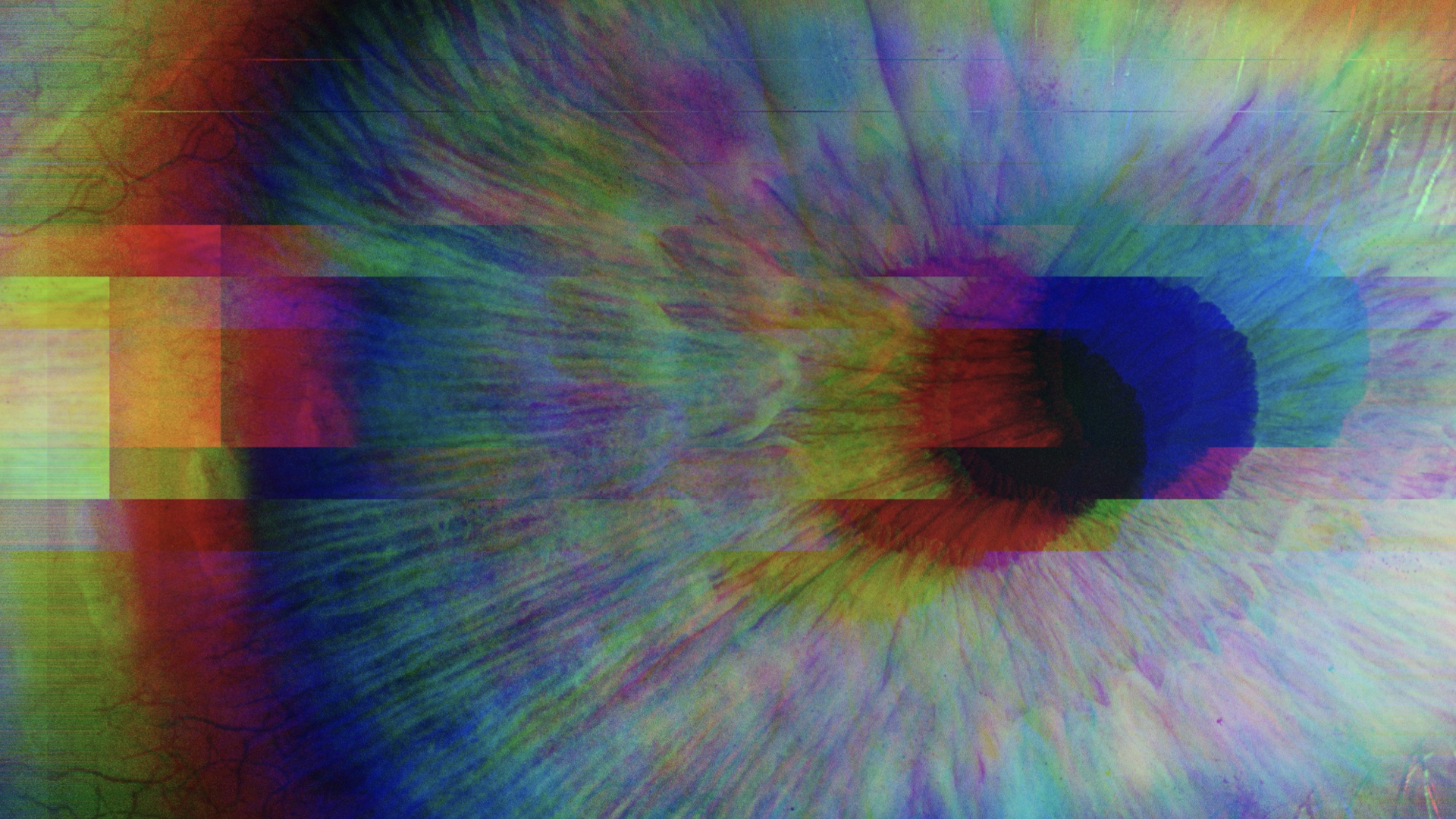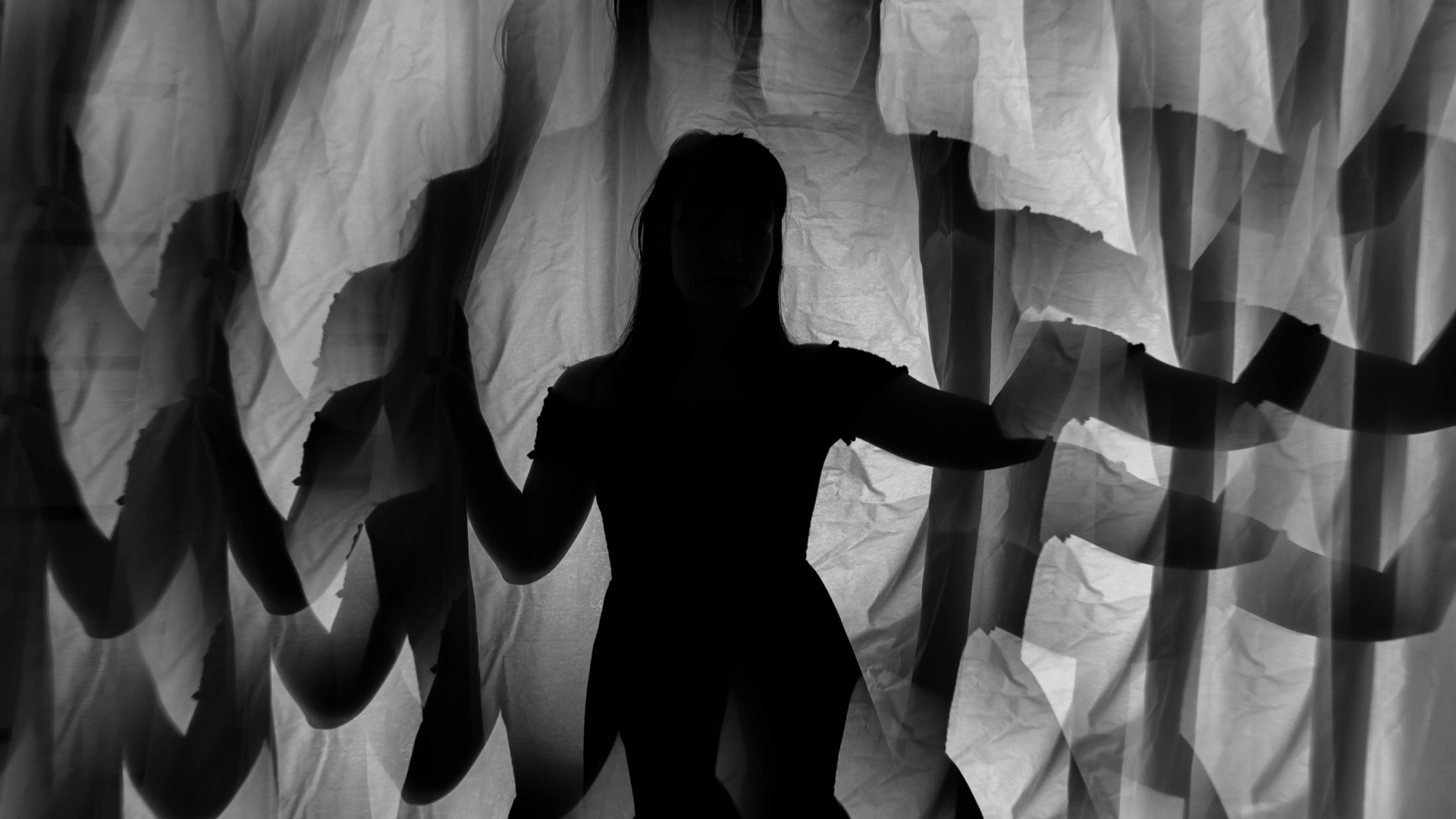There’s a running theme in American life today that the cultural left has taken on a censor’s role previously held by the religious right. Whether you can see it in organized campaigns to remove problematic books from circulation or in more spontaneous drives to shame people who say the wrong things online, the idea certainly has something to it. What’s up for debate is whether the new censoriousness should be as troubling as the old was—or whether any comparison with right-wing religious inquisition is apt at all. Some point out the rigidity of today’s progressive norms and the often ritualistic requirements doing penance for violating them—social-media apologies, privilege confessions, and so on—concluding that the tenets of contemporary social-justice advocacy are essentially elements of a new religion. Are they?
For the novelist Leigh Stein—the author of Self Care, a novel satirizing wellness influencers, and the forthcoming What to Miss When, a collection of poetry written during the pandemic—“wokeness” isn’t a new religion; it’s a secular tendency that’s taken on elements of religion, unsustainably. For Stein, contemporary progressive activism is pointed in the right direction, but it’s also chronically compromised by the incentives of influencer marketing and, in the absence of a culture of forgiveness, often toxic. Of her fellow progressive Millennials, Stein says, “Our new belief system is a blend of left-wing political orthodoxy, intersectional feminism, self-optimization, therapy, wellness, astrology, and Dolly Parton.”
Phoebe Maltz Bovy: You think something is filling a religion-like role these days, which isn’t just politics, or even so-called “wokeness,” but something more specific and hybrid. What is it?
Leigh Stein: I can start to answer that by talking about how I came to see politics as religion myself, which is from my feminist-organizing experience—running a Facebook community and organizing conferences for feminist writers, and burning out on that; and then maybe a year later, joking that I had escaped a cult. Or it started as a joke, but the more I thought about it, the more I felt it was true. There’s an orthodoxy that I see this among my peers, who are largely secular, left-wing, Millennials—a groupthink that I really had a fear of questioning.
Last summer, there was a collision between wellness, self-help, and activism on social media. So suddenly, all the women you were following on Instagram for tips on how to take care of yourself became the same women telling you how to be a good anti-racist. It was a little confusing that someone could offer all of that at once.
Bovy: It seems that there’s been a blurring of categories. Influencers on Instagram, who we might go to for fairly apolitical things, became activists, whether or not they were suited to it. Influencers whose personal brands were very much about rich, thin, white women, for example, rebranded themselves as anti-racist influencers. How should we understand this change?

Stein: It’s politics and lifestyle brands intersecting in a curious way—and it’s almost like there’s no choice: Now your fans are holding you accountable. There’s a blurring of categories, where we’re now holding corporations to account for their values—as if corporations are people that have values—and we’re asking people for their brand statements, and their PR apology notes, as if they’re corporations. We’re all mixed up about what makes a company—or what makes a brand, now that people are brands.
While Brené Brown and Gwyneth Paltrow and Glennon Doyle have millions of followers, and they’re the most visible icons of this tendency, it’s trickling down. It’s branding and product differentiation. Women are trying to differentiate themselves in this crowd: I’m authentic, I’m real. I’m not a phony, like this other woman. And yet, you’re still using the same tools, which are social media, to communicate your identity to your fans in a way that they go, Oh, she’s like me, I’ll follow her.
There’s an obsession with identity labels, which is part of this sorting effect that ascribes us to these different groups we’re in and these different people we follow.
There’s a blurring of categories, where we’re now holding corporations to account for their values—as if corporations are people that have values—and we’re asking people for their brand statements, and their PR apology notes, as if they’re corporations. We’re all mixed up about what makes a company—or what makes a brand, now that people are brands.
Bovy: The phenomenon you describe is generational, but as you write, it also has to do with gender. Why do you think this phenomenon is so female-dominated, in terms of both influencers and followers? Is it that women have specific spiritual needs at this time that more traditional sources aren’t addressing, or is it about women being socialized to apologize, confess, and flagellate themselves?
Stein: One answer is that Instagram users are mostly women. Another is that women have been disproportionately indoctrinated by the self-help industry. The self-help industry is just enormous. I was looking at Kathy cartoons from the 1980s again. They’re hilarious, because it’s exactly the same today. It’s like Kathy, frantic, saying, When will this fitness trend be over?! I was cracking up because, of course, now the fitness trend—instead of aerobics, it’s weightlifting. It never goes away. It just gets rebranded.
So women are constantly given the message that they need to work on their bodies, their minds, and their souls, whether that’s through church, reading books, or dieting and exercise. These influencers just slot right in. It’s not Marie Claire magazine; it’s Brené Brown—but it’s the same.

Brené Brown and Glennon Doyle are both Christian, and they don’t hide that, but they make their messaging so palatable that their faith doesn’t turn off followers if they’re agnostic or atheist or otherwise non-Christian. It’s a religion that you can easily believe in. They’re like, Come on board, we’re for everyone. Have you ever felt vulnerable? Me too! Here’s a space for you.
I’m hesitant to judge or shame anyone who follows these women, because I think there’s so much judgment and shame on the internet already. But I don’t feel emotionally moved by a Post-It note telling me to “Do no harm and take no shit.” That doesn’t make me feel excited.
Bovy: You included Gwyneth Paltrow among “the neo-religious leaders of our era,” and she’s not a name I would have associated with spirituality, although she certainly has a lot of cultural and economic influence. Where do “quasi-spiritual influencers” or “Instavangelists” fit in the field of influencers generally? What distinguishes them from other influencers—or is there always some spiritual component?
Stein: Goop [Paltrow’s lifestyle site] definitely got woke over the last year. One headline on its website was, “Taking a Spiritual Approach to Anti-Racist Work.” And that was a Q&A with Rachel Ricketts, who wrote a book called, Do Better: Spiritual Activism for Fighting and Healing from White Supremacy.
I’m hesitant to judge or shame anyone who follows these women, because I think there’s so much judgment and shame on the internet already. But I don’t feel emotionally moved by a Post-It note telling me to “Do no harm and take no shit.” That doesn’t make me feel excited.
Bovy: It seems that the new spirituality differs from the old in its emphasis on the individual—both the leader, “shilling a memoir,” and the follower, who gets self improvement. Do you think there’s a hunger for a deeper spirituality here?
Stein: Yes. What we realized during the pandemic is that even people in their 30s were thinking, Oh my God, we’re all going to die. Do I want to spend my life on Instagram?
That’s a deeper, more profound question that I would never turn to Glennon Doyle for the answer to. My time on earth is limited. What is the purpose? Why am I here? Why did God make me—for those who believe in God, at least. But social media incentivizes self-centeredness and narcissism. If you took that away, there would be no influencers at all. So it’s a trap. There’s no way Glennon Doyle could truly be selfless and anonymous, and also have a huge following. The only people we can follow online are those who are willing to build brands.

Bovy: In in your novel Self Care, you pinpoint and satirize something specific about contemporary American culture: “During the years of the Trump administration, I watched two movements collide: an extremely online mode of social justice activism and the rebranding of diet and beauty culture as wellness and ‘self care.’”
What you describe is a tension between earnest belief in social-justice aims and cynical manipulation of those aims, either to sell products or to deflect from privilege more generally. Your characters in Self Care display both elements of being true believers and elements of the more calculated approach. Is the danger that people—perhaps Millennial women especially—are falling for an empty faux-spirituality, or is it more that this belief system is fundamentally cynical?
Stein: It’s very difficult to sort through what’s authentic when there’s so much performed authenticity. When I see a Cadbury Easter egg branded for gay rights, I don’t want to eat a chocolate rabbit and feel better about myself because it’s somehow helping LGBTQIA+ people. That confluence of social justice and marketing, it drives me nuts.
So then I think, well, what’s the answer? Is that that I want them separate? It’s so frustrating that it’s all coming together. Ultimately, the goal is still just to sell you something. Or when I read a Vogue interview with Gloria Steinem, about the new Gloria Steinem lip balm, and I thought, I don’t want Gloria Steinem lip balm. Quit using feminism to get me to buy things.
Social media incentivizes self-centeredness and narcissism. There’s no way Glennon Doyle could truly be selfless and anonymous, and also have a huge following. The only people we can follow online are those who are willing to build brands.
Bovy: The linguist and cultural critic John McWhorter calls “third-wave anti-racism” a “new religion,” and some of his critiques overlap with yours—as where he writes, “A new religion in the guise of world progress is not an advance; it is a detour. It is not altruism; it is self-help.”
But his point seems to be less about how contemporary anti-racism fails, in comparison with actual religions, and more a criticism of worldviews that take on some of the more potentially restricting qualities of religion, specifically in their inflexibility and rejection of rationalism. Do you think contemporary progressive politics is in any way reviving the more detrimental aspects of religion?
Stein: Yes, there’s a new Puritanism and a sorting of people into good and bad—but without any redeeming idea of grace and mercy. There is no forgiveness. There’s confession, and there’s a public apology made under extreme circumstances, but you’re never absolved. That’s a really punishing mindset and worldview.
I went to a church service on Sunday, and I was briefly a Christian as a teenager, and we said the Lord’s Prayer, which I still have memorized, and a line in the Lord’s Prayer is, “Forgive us our trespasses as we forgive those who trespass against us.”

If I could just imbue that one line into all of social media, the world would be a better place. Even if you don’t believe in Christ, you can understand that Christ represents the idea that we’re all fallible, we all make mistakes, we all hurt people’s feelings without meaning to. And so in return, we can offer each other grace, because we know what it’s like to err and to fail.
There’s none of that online. You’re either pure in your politics and ideology or you’re a heretic.
Bovy: Perhaps some of the issue here is that so-called “wokeness” doesn’t have any real system for how things are meant to go. If somebody says something offensive or does something bad, no apology is good enough and there’s no path forward.
This happened recently with Teen Vogue, whose incoming editor had made offensive tweets in 2011, as a teenager. There was a lot of will to punish, but an absence of any rhyme or reason, let alone any path to redemption. It seems that religions, even if they can be similarly punitive, tend to have more structure and meaning in this respect?
Stein: When I think about the Civil Rights movement, it was a campaign of persuasion. You had to convince a lot of people in America that this whole system needs to change, this oppressive system against Black people in America has to change. You had to change hearts and minds. Now, you have to be pure from the beginning, or it doesn’t count. There’s no room to grow.
There’s a new Puritanism and a sorting of people into good and bad—but without any redeeming idea of grace and mercy. There is no forgiveness. There’s confession, and there’s a public apology made under extreme circumstances, but you’re never absolved. That’s a really punishing mindset and worldview.
So how do we achieve progress? It’s only just shaming and punishing the people who are out of step. The version I’m seeing most is people on the left doing this to other people on the left. It’s very internecine. I’m not talking about the battle between left and right; I’m talking about left against left. If you’re a little too close to the center, or if you dare ask a question, you’re ostracized for that. It’s not an effective mode of persuasion, if your goal is to convince at all.
And the Teen Vogue example, what would we want a 17-year-old to learn from that experience? We would want her to recognize that she was negatively stereotyping Asians, and apologize, which she did in 2019. What more, what other fire do we want her to go through to prove that she’s learned? How do we prove we’ve learned and we’ve grown?
Bovy: The tension between social justice as an earnest belief and as a cynical class-maintenance strategy may be particularly striking when it comes to expensive private schools offering “woke” curricula and workshops. What do you make of that?
Stein: We’ve had a reckoning for women with the #MeToo movement, and then we have a racial reckoning after the death of George Floyd, and I keep thinking, when are we going to have a class reckoning?

There’s such a class divide, hurting so many people, and there are so many economic solutions that would help combat systemic racial inequality, if enacted. But we’ve focused on race separately from class. It’s like, you’re not even allowed to talk about class, because then you’re doing “whataboutism,” and you’re avoiding talking about race.
Bovy: A lot of the problem you diagnose has to do with people being excessively online. Do you think the eventual end of the COVID-19 pandemic will bring about a newfound enthusiasm for life offline? Do you think the problem of people turning to screens rather than to offline spiritual life may wind up resolving itself?
Stein: Yes, absolutely. I even wonder if some of these religious nones will go to actual congregations again. I wonder if there’s going to be a religious renaissance. I am someone who has been online for most of my life, since I was 13 years old. Which is I guess normal for Generation Z. But I’m a Millennial, and I would always push back against people who said online life wasn’t real life. I would get really defensive and angry about this. Online life is real life. The pandemic has shown me that it is real life. But it’s not enough. I can’t live my whole life online, even though I’m very comfortable being online. It’s just not enough. Living as though it’s enough, this is destroying our souls.

